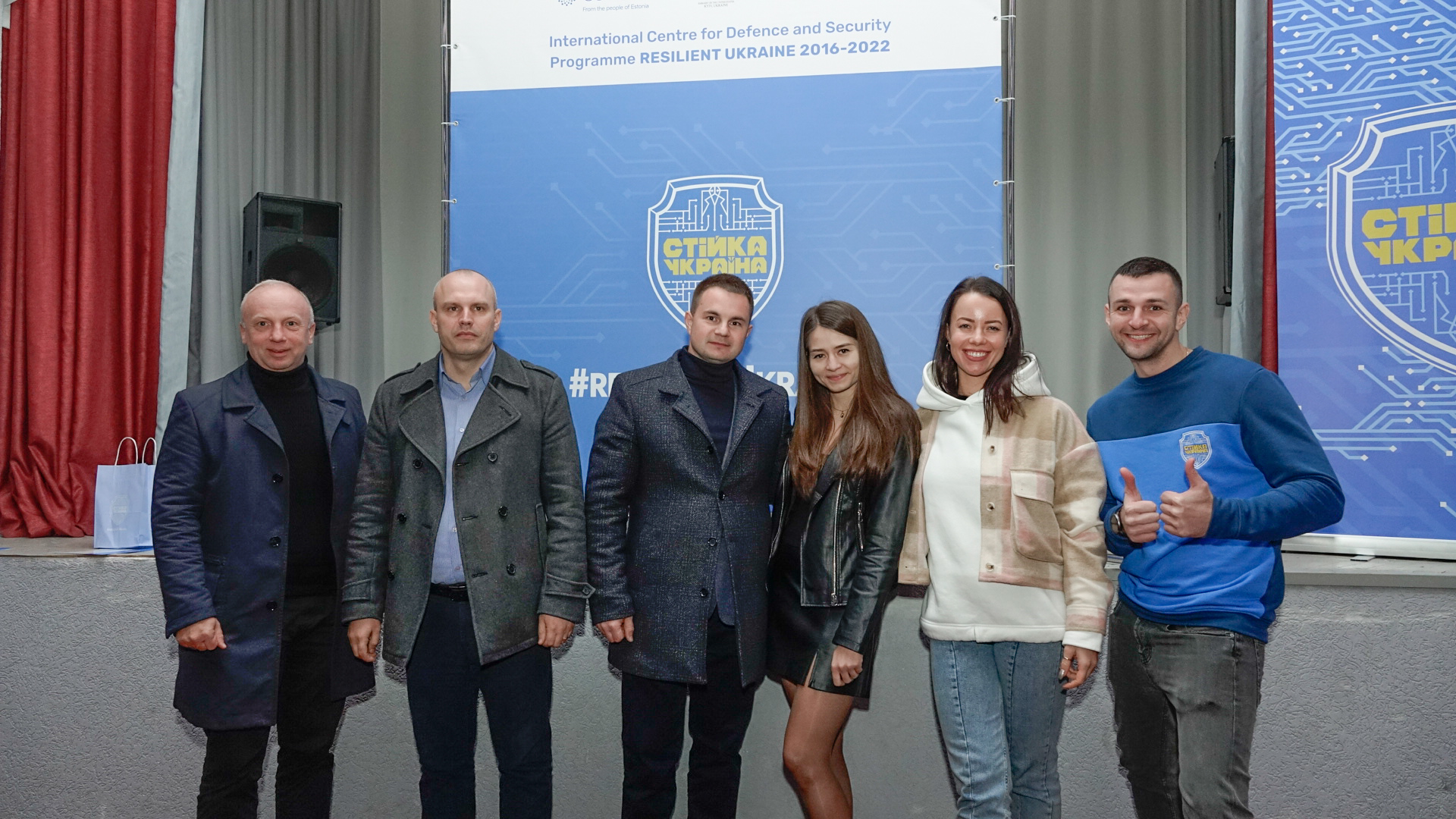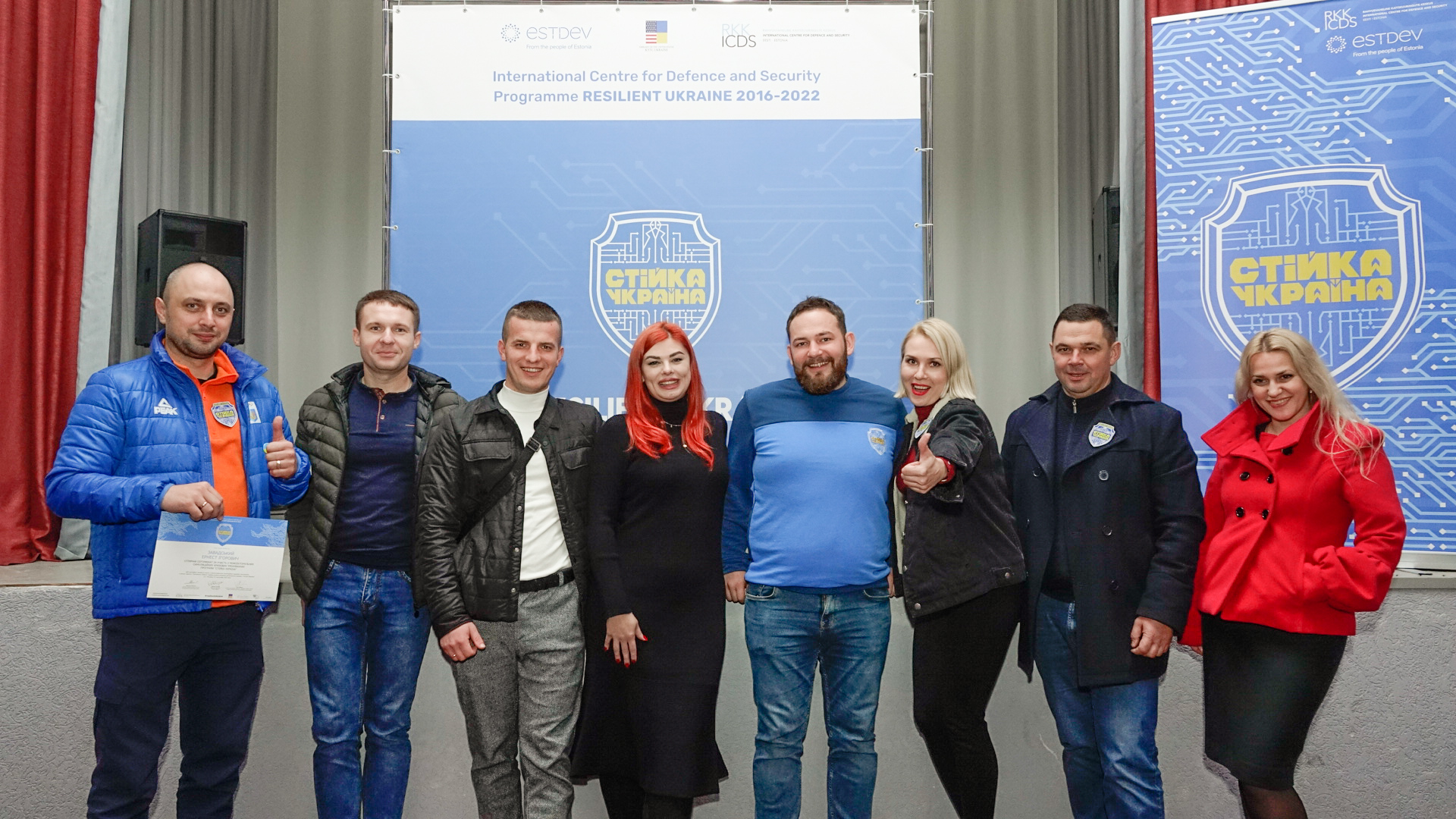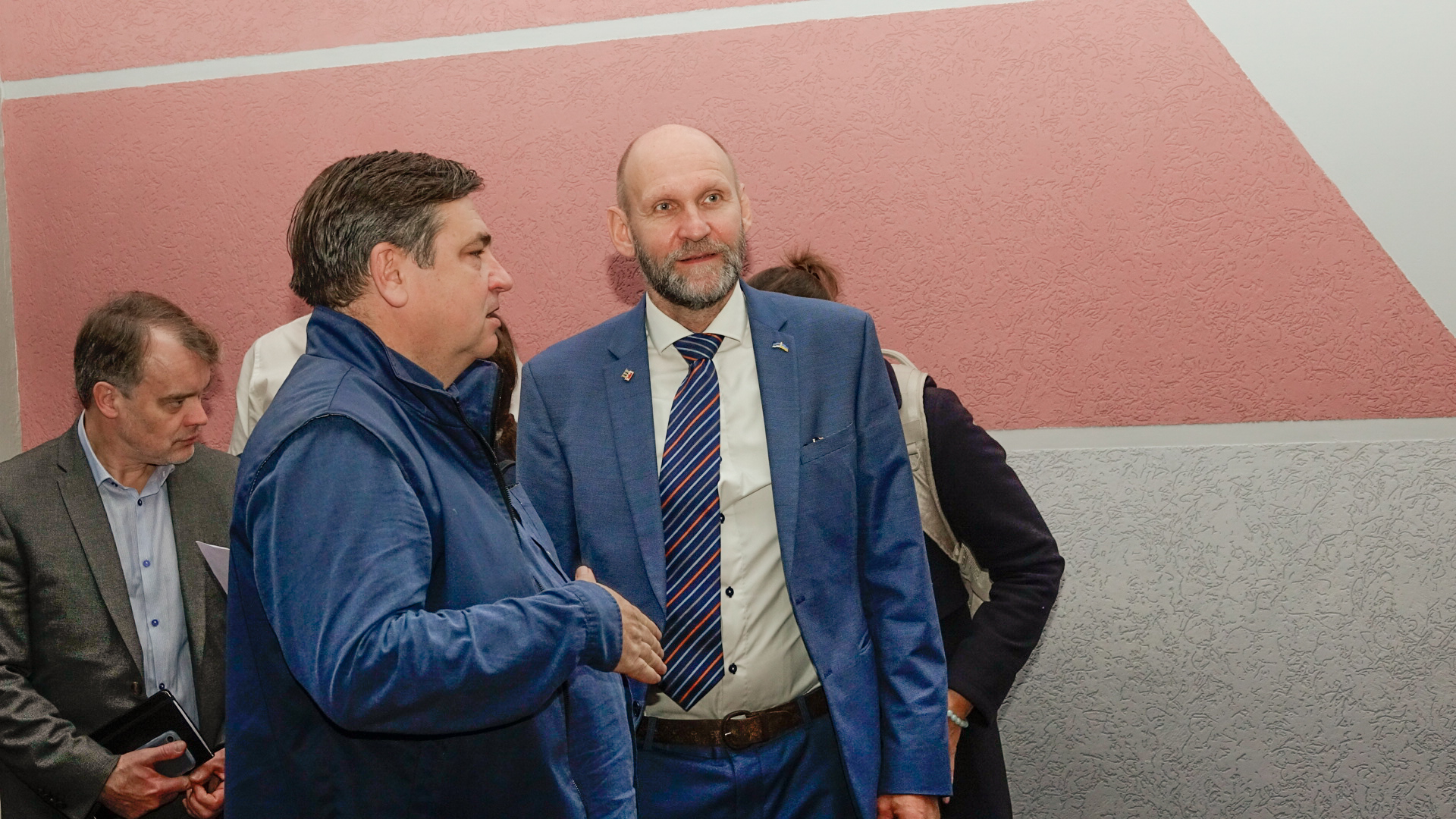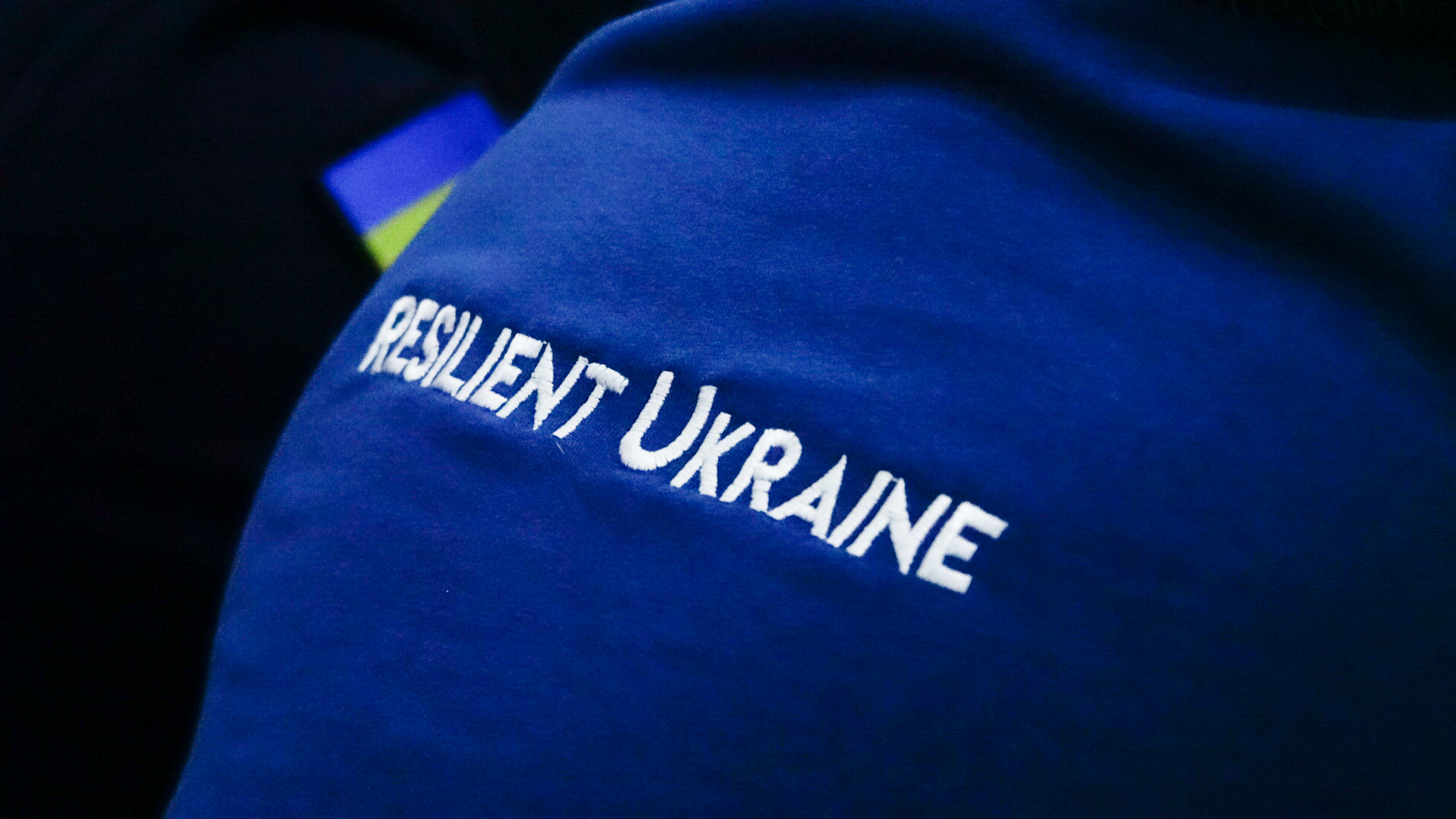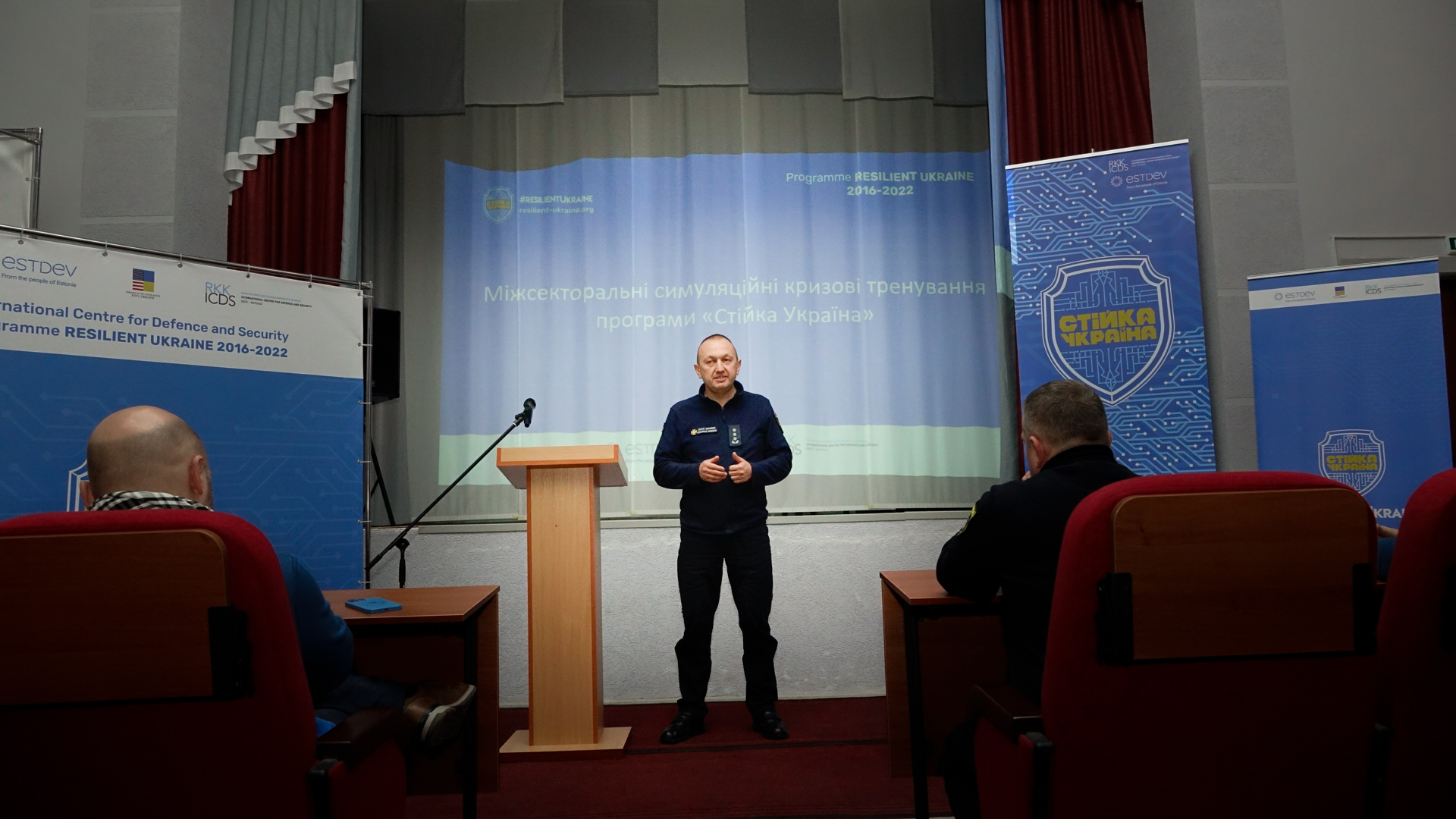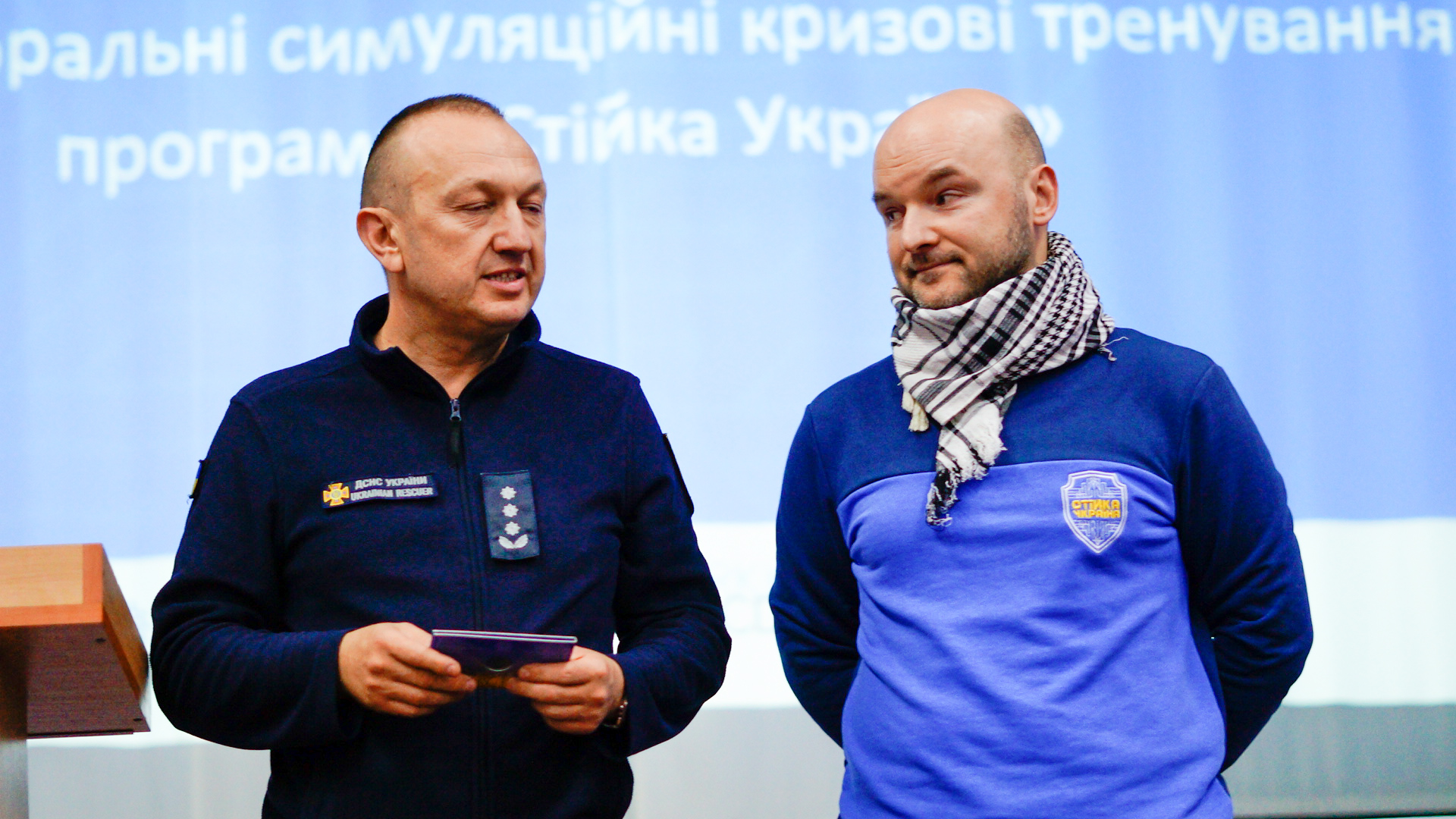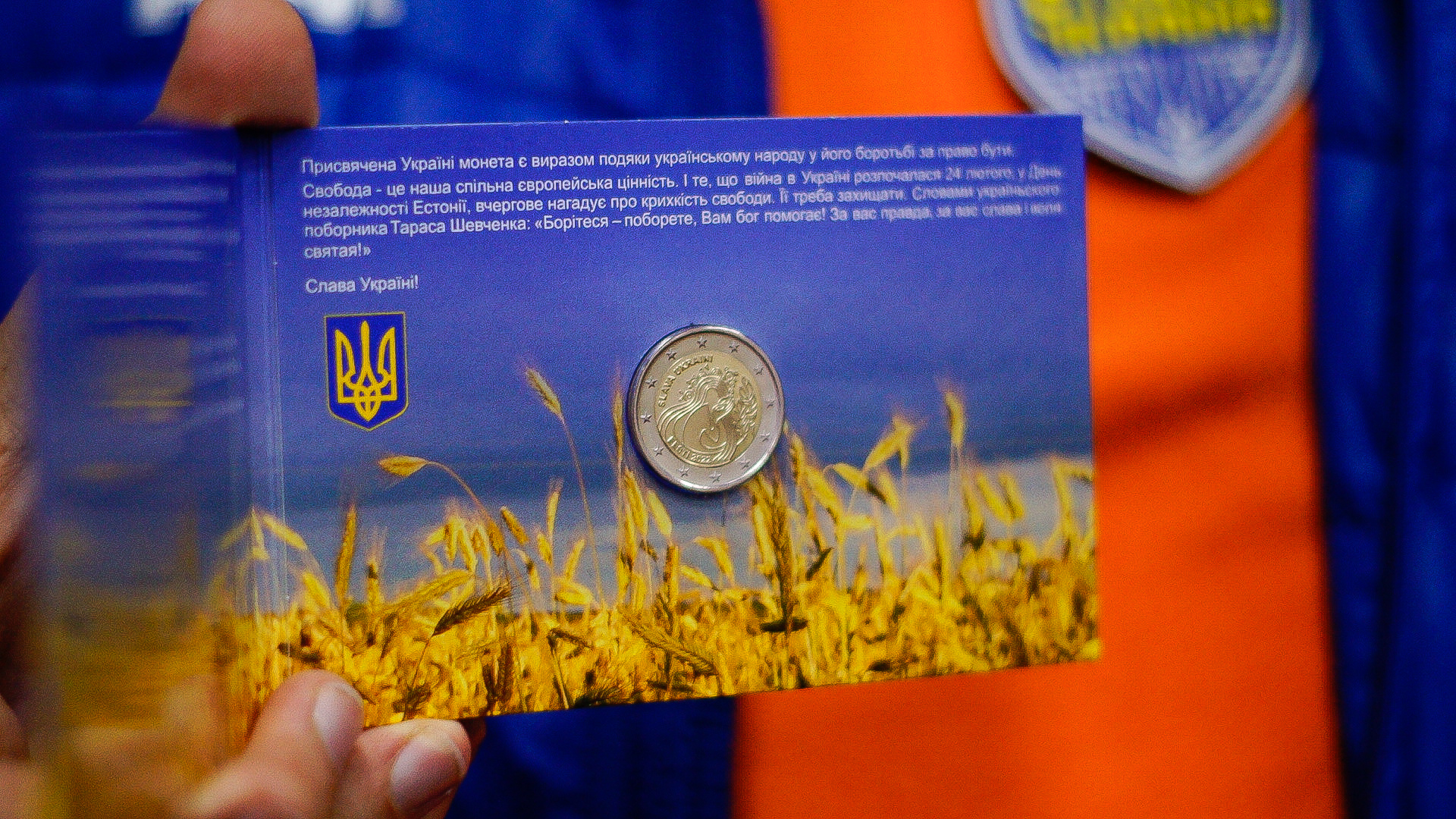“Resilient Ukraine” visits Zakarpattia with the cross-sectoral crisis simulation exercises
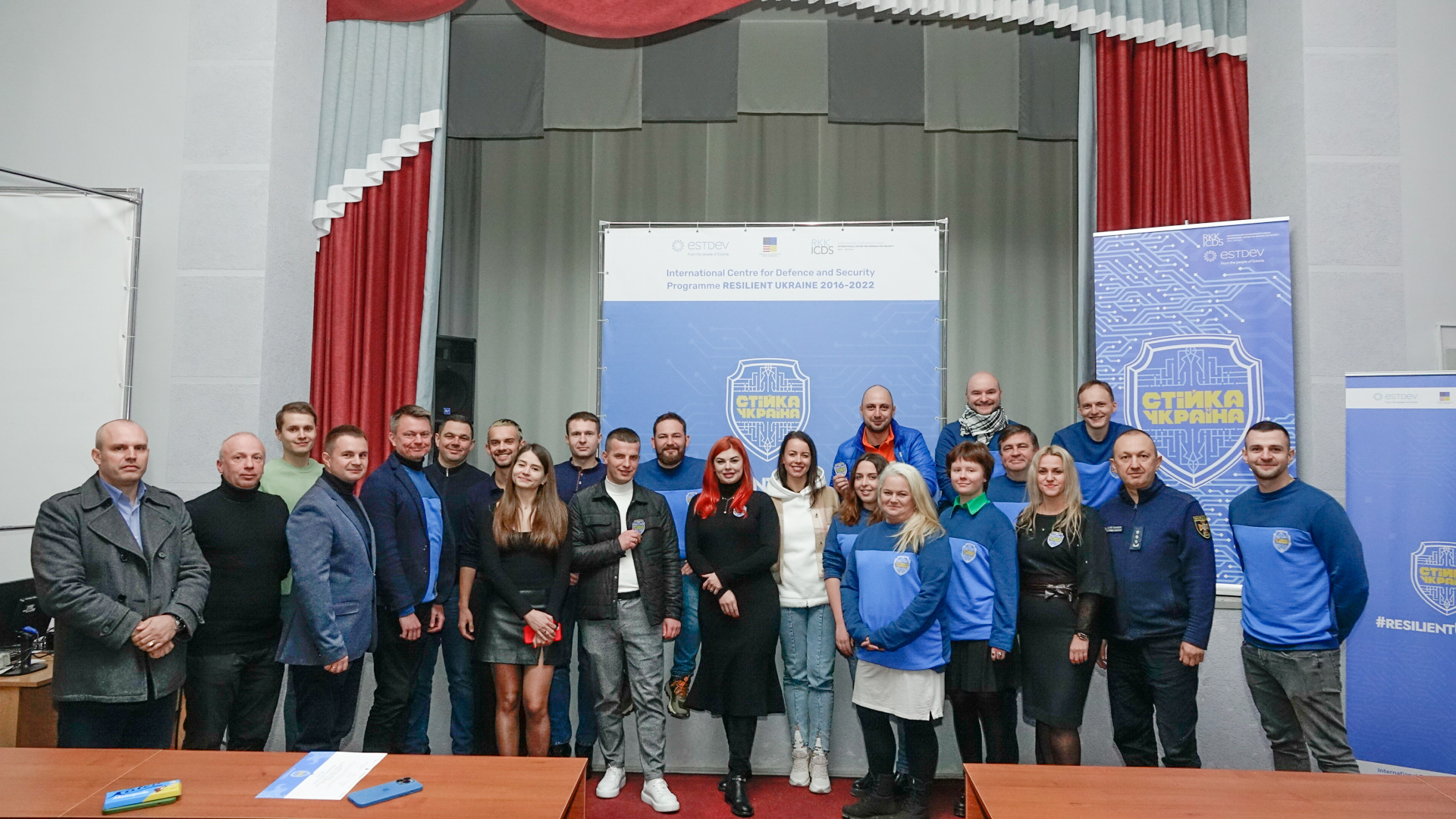
From 3 to 4 November, the "Resilient Ukraine" programme held cross-sectoral crisis simulation exercises in the city of Uzhhorod to strengthen resilience at the local and regional levels.
The exercises brought together over 20 participants from various sectors, including the Zakarpattia Regional Military Administration, Uzhgorod City Council, the Main Directorate of the State Emergency Service of Ukraine in Zakarpattia Oblast, as well as local civil society and business community representatives.
An Estonian delegation, headed by Helir-Valdor Seeder, the first vice-speaker of the Riigikogu (Parliament of Estonia), launched the introductory part of the exercises. The first vice-speaker praised the long history of cooperation between Estonia and Ukraine and reassured that Estonian counterparts were doing everything possible to support Ukrainians in our joint fight against the aggressor. Finally, Helir-Valdor Seeder wished success to the participants in managing a complex crisis developed by the experts of the "Resilient Ukraine" programme.
At the same time, Dmitri Teperik, chief executive of the International Centre for Defence and Security (ICDS) and the "Resilient Ukraine" programme director, noted that, in addition to financial and military aid, Estonia would continue to assist Ukraine in the field of human capacity development — one of the main purposes of cross-sectoral crisis simulation exercises. These are carried out within the framework of the "Strengthening the resilience of Ukraine through the development of regional experience in security issues" project that unites professionals from various sectors and trains them to manage the simulation of a complex crisis.
"We have seen that Ukraine is highly adaptable and able to cope with crises,” Dmitri Teperik pointed out. “Despite the war scenario being one of the most extensive and complex crises, Ukrainians have demonstrated exceptional flexibility and outstanding resilience at various levels", he added.
Within a simulation exercise, the participants interact with each other in a cross-sectoral team and practice joint decision-making while coordinating group efforts in order to find out-of-the-box solutions to complex crises.
According to Ernest Zavadskyi, an attendant from Uzhhorod, the challenges embedded within the crisis simulation scenario were highly relevant and realistic, in particular when compared to those experienced during the first weeks of the full-scale invasion.
"The scenario of cross-sectoral crisis simulation exercises was very similar to the problems and challenges that our city and region faced after February 24,” Ernest Zavadskyi noted. “It seems that it was developed based on the events that took place in our region, which brings the simulation very close to reality", he speculated.
The project team cultivated a safe learning environment so that the participants could share their knowledge and skills necessary to manage emergencies.
"The main goal is to promote horizontal interaction and build trust,” said Ivan Vartovnyk, project coordinator of the "Resilient Ukraine" programme. “Therefore, it was extremely important for us to create a safe learning environment where participants could share their experience with each other.”
Volodymyr Tsitsei, the first deputy chief of the Main Directorate of the State Emergency Service of Ukraine in Zakarpattia Oblast, attended the closing ceremony.
"We are very grateful to Estonia and the Estonian-Ukrainian programme for introducing this new practical format of cross-sectoral cooperation to us,” Volodymyr Tsitsei noted. “We are always open to new things and ready to adopt new forms of interaction that will contribute to strengthening resilience and security in our region", he concluded.
Dmitri Teperik, the director of the "Resilient Ukraine" programme, expressed his gratitude to the first deputy chief of the Main Directorate of the State Emergency Service of Ukraine in Zakarpattia Oblast and presented a commemorative coin card to him as a gift.
"This commemorative coin has an inscription saying "Glory of Ukraine." It is another expression of support for your country introduced by the Bank of Estonia. This coin officially circulates within the EU, reminding us of the victorious struggle of the Ukrainian people and their resilience.”
The cross-sectoral crisis simulation exercises in Uzhgorod were facilitated by the Transcarpathian Institute of Postgraduate Pedagogical Education.
The "Resilient Ukraine" team plans to conduct the next exercises in Ternopil in late November 2022.
Reference:
The International Centre for Defence and Security (ICDS) is the leading think-tank in Estonia specialising in foreign policy, security and defence issues. We aspire to be the regional knowledge hub of the first choice for the security and defence communities of Estonia, its allies, and partners.
The “Resilient Ukraine” programme aims at developing standards for measuring Ukrainian society's resilience and continues to improve this system. "Resilient Ukraine" has been operated by the International Center for Defence and Security (ICDS) since 2016 with support from the Estonian Ministry of Foreign Affairs within the development cooperation programme.
The “Strengthening Ukraine’s Societal Resilience through Building Regional Expertise and Analytical Capacity in Civil Security Issues” project is implemented with financial support from the U.S. Department of State Office of the Assistance Coordinator for Europe and Eurasia under the Eighth Round of the Development Cooperation Partnership (DCP) Program.
